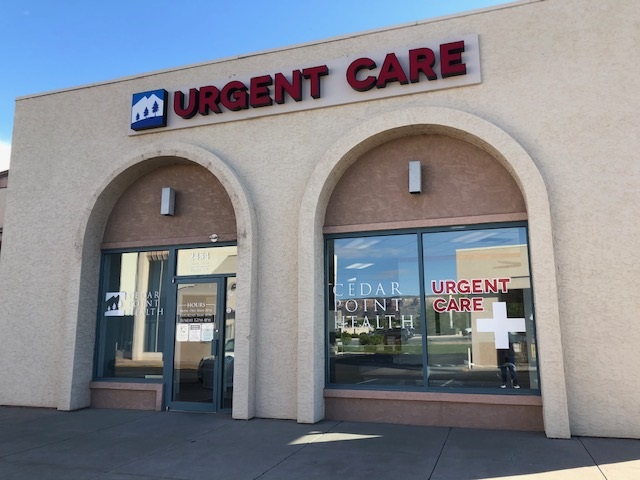Urgent care centers are often perceived as a middle ground between a primary care physician and the emergency room, holding a unique position in healthcare for their convenience and accessibility. They distinguish themselves with the ability to provide timely medical attention for a range of conditions that, while not life-threatening, require prompt care. This includes the capability to prescribe antibiotics, a service that is both critical and highly sought after by those suffering from bacterial infections.
This distinctive role allows urgent care centers to offer a specialized service, positioning them as a crucial healthcare provider in the community. Key services include treatment for urinary tract infections, strep throat, skin conditions like cellulitis, and respiratory infections such as pneumonia, each known for necessitating antibiotic intervention. Single-visit care for immediate concerns also highlights the versatility and efficiency of urgent care.
Each condition treated with antibiotics at urgent care showcases specific symptoms, diagnostic approaches, and treatment protocols, reflecting the centers’ comprehensive approach to patient care. The following sections will delve into these details, providing a deeper insight into the pivotal role urgent care plays in managing bacterial infections, underscoring the importance of these facilities in offering prompt, effective medical intervention.
Table of Contents
- What is urgent care?
- Can urgent care prescribe antibiotics?
- For bacterial infections like UTIs and strep throat
- For skin conditions such as cellulitis
- For respiratory infections including pneumonia
- When to visit urgent care for antibiotics?
- Persistent fever over 100.4°F
- Difficulty breathing or severe cough
- Unusual skin rash or infected wounds
- Urgent care visit for antibiotics: what to expect?
- Review of medical history and symptoms
- Physical examination focusing on affected areas
- Diagnostic tests, such as blood tests or cultures
- Limitations of antibiotics at urgent care
- Ineffective against viral infections like the flu
- Potential contribution to antibiotic resistance
- If urgent care can’t prescribe antibiotics
- Referral to a specialist for further evaluation
- Advice on over-the-counter aids and home care
What is urgent care?
Urgent care centers are strategically positioned to fill the gap between the emergency room (ER) and a primary care physician’s office. They cater to those times when you need immediate medical attention for conditions that are serious but not life-threatening—situations where waiting for a doctor’s appointment might not be feasible. Known for their convenience, these facilities typically offer extended hours, walk-in visits, and a wide range of services.
This includes everything from treating minor injuries to diagnosing and managing illnesses. One of the key strengths of urgent care is its ability to provide quick and efficient medical care. This is especially critical for patients who require immediate attention but want to avoid the high costs and long waits often associated with ER visits.
Urgent care centers are well-equipped to handle a diverse array of health concerns, establishing them as a vital component of the healthcare system for those in need of prompt medical services. Importantly, they also have the capability to prescribe medications, such as antibiotics for bacterial infections, underscoring their role in delivering comprehensive care in a timely manner.
Can urgent care prescribe antibiotics?
Yes, urgent care centers are fully capable of prescribing antibiotics for a range of bacterial infections. These healthcare facilities are adept at diagnosing and treating conditions that necessitate immediate antibiotic treatment, such as urinary tract infections (UTIs), strep throat, skin conditions like cellulitis, and respiratory infections including pneumonia. The provision of antibiotics is a key component of the care that urgent care centers offer, enabling them to effectively address infections that require prompt intervention.
By offering timely diagnosis and treatment, urgent care centers significantly contribute to preventing the worsening of infections and ensuring a quicker recovery for patients. Their role in the healthcare continuum underscores the importance of having accessible medical care that can swiftly respond to the needs of individuals facing bacterial infections. This capability not only meets a critical healthcare need but also provides a convenient and efficient alternative to emergency room visits for non-life-threatening conditions requiring antibiotic therapy.
For bacterial infections like UTIs and strep throat
Urgent care centers excel in the rapid diagnosis and treatment of bacterial infections, notably urinary tract infections (UTIs) and strep throat. These conditions not only cause significant discomfort but also have the potential to worsen quickly if not treated promptly. The prescription of antibiotics during an urgent care visit is key to alleviating symptoms and preventing further complications, offering a swift path to recovery.
For skin conditions such as cellulitis
When it comes to skin conditions, especially cellulitis, which manifests through redness, swelling, and a feeling of warmth, urgent care can be a lifesaver. The condition requires immediate medical attention to prevent the infection from spreading. Antibiotics prescribed by urgent care professionals can effectively halt the progression of cellulitis, underscoring the importance of quick and accessible treatment options.
For respiratory infections including pneumonia
Respiratory infections, including pneumonia, stand out as critical areas where urgent care centers make a significant impact. By providing antibiotics, these facilities offer relief and a chance for recovery to individuals battling these infections. Prompt treatment is crucial, as respiratory conditions can compromise breathing and overall health, highlighting the vital role of urgent care in managing such infections efficiently.
When to visit urgent care for antibiotics?
When experiencing symptoms that suggest a bacterial infection, it’s crucial to seek timely medical intervention. Urgent care is the right choice if you’re facing:
- A persistent fever over 100.4°F, indicating your body is battling an infection.
- Difficulty breathing or a severe cough, which could be signs of a serious respiratory infection needing antibiotic treatment.
- An unusual skin rash or infected wounds, signaling that immediate medical attention is necessary.
These symptoms, particularly when they persist or worsen, underscore the urgency of visiting an urgent care center. Such facilities are well-equipped to provide the necessary medical assessment and prescribe antibiotics to effectively fight the infection, ensuring a quicker path to recovery.
Persistent fever over 100.4°F
A persistent fever over 100.4°F serves as a significant indicator that your body is actively fighting an infection. This condition, particularly when it doesn’t subside, often necessitates a medical evaluation to determine if antibiotics are required. Urgent care centers are equipped to assess and potentially prescribe the necessary medication to combat the infection.
Difficulty breathing or severe cough
When you’re experiencing difficulty breathing or a severe cough, it’s a clear sign of a potential respiratory infection that may need antibiotic intervention. These symptoms should not be ignored, as they can escalate quickly. Visiting an urgent care can ensure you receive a prompt diagnosis and the appropriate antibiotics to address the infection effectively.
Unusual skin rash or infected wounds
The presence of an unusual skin rash or signs of infected wounds indicates a skin infection that could benefit from antibiotic treatment. It’s important to seek immediate medical attention at an urgent care facility to prevent the infection from worsening. A healthcare professional can assess the severity of the infection and prescribe the right antibiotics to promote healing and prevent further complications.
Urgent care visit for antibiotics: what to expect?
When visiting an urgent care for antibiotics, patients can expect a comprehensive and swift medical evaluation. The visit usually starts with a review of medical history and symptoms, providing a clear picture of the patient’s health and the nature of their infection. This is crucial for tailoring the treatment to the individual’s specific needs.
Following this, a physical examination is conducted, with a particular focus on the areas showing signs of infection. This step is essential for assessing the severity and extent of the infection firsthand. Depending on the initial findings, diagnostic tests, such as blood tests or cultures, might be performed.
These tests are aimed at identifying the exact type of bacteria causing the infection, thereby enabling the prescription of the most effective antibiotics. This structured approach ensures that patients receive the right diagnosis and treatment promptly, facilitating a quicker recovery process.
Review of medical history and symptoms
The initial step in an urgent care visit for antibiotics involves a comprehensive review of the patient’s medical history and current symptoms. This critical evaluation helps in piecing together a complete health picture, highlighting any past conditions or allergies that might influence the selection of antibiotics. Understanding the patient’s symptoms in detail is essential for guiding the subsequent steps in the diagnostic process.
Physical examination focusing on affected areas
After gathering a thorough medical history, a focused physical examination is conducted, particularly on the regions exhibiting signs of infection. This hands-on assessment is vital for determining the infection’s impact and scope. It provides direct insights into the severity of the condition, which is instrumental in deciding the course of treatment.
Diagnostic tests, such as blood tests or cultures
Based on the findings from the physical examination, specific diagnostic tests might be warranted. These could include blood tests or cultures, which are pivotal in pinpointing the exact type of bacteria causing the infection. Such precision in diagnosis allows for the prescription of the most effective antibiotics, tailored to combat the identified pathogens, ensuring a targeted and efficient treatment approach.
Limitations of antibiotics at urgent care
While urgent care centers play a pivotal role in prescribing antibiotics for bacterial infections, it’s crucial to understand the limitations of this treatment. Antibiotics are ineffective against viral infections, such as the flu or the common cold, highlighting the importance of accurate diagnosis before prescription. The misuse of antibiotics not only fails to treat viral infections but also contributes to a significant global health issue: antibiotic resistance.
This phenomenon occurs when bacteria evolve to resist the effects of antibiotics, making infections harder to treat and increasing the risk of spreading resistant bacteria. Therefore, healthcare professionals in urgent care settings exercise caution and precision in prescribing antibiotics, ensuring they are used only when necessary and appropriate. This careful approach is essential for maintaining the effectiveness of antibiotics, preventing the spread of resistance, and ensuring that patients receive the correct treatment for their specific condition.
Ineffective against viral infections like the flu
Antibiotics target bacterial infections and are ineffective against viruses, such as the flu. This critical distinction underscores the necessity of precise diagnosis prior to prescribing antibiotics. Utilizing antibiotics for viral infections not only lacks efficacy but also contributes to unnecessary medication consumption, highlighting the importance of appropriate use.
Potential contribution to antibiotic resistance
The misuse or overutilization of antibiotics plays a significant role in fostering antibiotic resistance. This phenomenon arises when bacteria adapt to the presence of antibiotics, diminishing their effectiveness and leading to more challenging infections to treat. Emphasizing responsible prescribing practices and judicious use of antibiotics is paramount in combating this escalating global health concern, ensuring these vital medications retain their effectiveness against bacterial infections.
If urgent care can’t prescribe antibiotics
When antibiotics are not deemed the right course of action, such as for viral infections, urgent care centers have protocols in place to ensure patients still receive optimal care. This includes the possibility of a referral to a specialist for conditions that require more in-depth evaluation or treatment beyond the scope of urgent care capabilities. Moreover, healthcare professionals can provide advice on over-the-counter aids and home care strategies, aimed at alleviating symptoms and supporting the body’s natural recovery process.
This comprehensive approach ensures that patients are guided towards the most appropriate care pathway, emphasizing symptom management and recovery even in the absence of antibiotic treatment.
Referral to a specialist for further evaluation
In instances where a patient’s condition surpasses the treatment capabilities of urgent care, a referral to a specialist is made. This ensures that patients gain access to advanced care tailored to their specific medical needs, facilitating a deeper evaluation and specialized treatment options beyond the scope of urgent care services.
Advice on over-the-counter aids and home care
For situations where antibiotics are not the recommended course of action, urgent care providers can offer advice on over-the-counter aids and effective home care strategies. This guidance aims to alleviate symptoms and promote recovery, equipping patients with knowledge and resources to manage their health effectively from the comfort of their homes.
Get directions to Cedar Point Health Urgent Care
Learn more about our urgent care services
Read related articles




